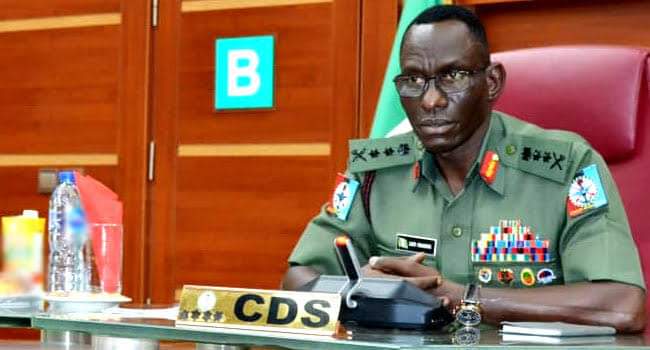
President Joe Biden and Israeli Prime Minister Yair Lapid on Thursday are expected to sign a new joint declaration aimed at expanding the security relationship between their nations and countering efforts by Iran to destabilize the region, according to senior administration officials.
The new declaration includes “a commitment to never allow Iran to acquire a nuclear weapon,” one official previewing Biden’s schedule said. It comes as Biden faces mounting pressure to present a comprehensive plan to constrain Iran amid rising tensions. Biden has pushed for reviving the Iran nuclear deal that former President Donald Trump withdraw the US from in 2018, but hopes for reentering the deal seem to be fading.
The declaration will express support for the Abraham Accords, one of Trump’s legacy achievements that normalized relations between Israel and several Arab countries and pursued an expansion of growing Arab-Israeli security and economic ties. It will also embrace expanding Israel’s integration into the region — a major theme of Biden’s four-day trip to the Middle East.
It will outline shared concerns of the two nations, including food security as well as supporting Ukraine’s sovereignty as Russia’s unprovoked invasion of the country continues.
“I talked about how important it was from my perspective for Israel to be totally integrated into the region and completely independent,” Biden told reporters after his meeting with Lapid concluded.
Biden later turned to Lapid and said, “I think the vast majority of the American public, not just my administration, is completely devoted to your security, without any if, ands, or buts.”
Officials say the President was expected to reiterate the US’ “ironclad” support for Israel’s security and discuss working toward a two-state solution to the Israeli-Palestinian conflict in his meeting with Lapid.
Shortly after landing in Tel Aviv on Wednesday the President reiterated his support for a two-state solution, saying, “That remains, in my view, the best way to ensure the future of equal measure of freedom, prosperity, and democracy for Israelis and Palestinians alike.”
But perhaps just as important were the words, “even though I know it’s not in the near term,” in reference to the two-state solution. A sentiment like that takes the pressure off Israeli leaders, not least Lapid, who faces voters in another general election in November.
The US and Israel on Thursday will launch a new high-level strategic dialogue on technology, which officials say is designed to elevate cooperation between the two nations on pandemic preparedness, climate technology, artificial technology and other trusted technology ecosystems.
The President on Thursday will participate in the first virtual leaders meeting of the “I2U2” group, which also includes Israel, India, and the United Arab Emirates. The focus of Thursday’s meeting is expected to be on food security as well as advancing clean energy, officials said. The UAE announced it was investing $2 billion in agricultural parks in India to tackle the food security crisis.
“This unique grouping of countries aims to harness the vibrancy of our societies and entrepreneurial spirit to tackle some of the greatest challenges confronting our world, with a particular focus on joint investments and new initiatives in water, energy, transportation, space, health, and food security,” a joint statement from the leaders of India, Israel, United Arab Emirates and the United States reads.
Biden will also meet with President Isaac Herzog of Israel at his residence and will discuss Herzog’s diplomatic efforts to further integrate Israel into the region, officials said.
The President will then meet with former Prime Minister Benjamin Netanyahu. The two leaders have a relationship that spans nearly four decades that began when Biden was a junior senator. All the same, it has not always been smooth sailing between the two men. Netanyahu made no secret of his disregard for former President Barack Obama — the feeling, by all accounts, was mutual — and Biden was badly embarrassed when a visit to Israel as vice president in 2010 coincided with an Israeli government announcement approving plans for new settlement homes.
“They, of course, go back many years and know each other well. And we are clear during this visit that the relationship between the United States and Israel is about the countries, our strategic partnership as two states — not about individual leaders,” one official said.
Biden will also meet with US athletes competing in the Maccabiah Games, an international Jewish and Israeli multi-sport event, and will view a portion of the opening ceremonies.









